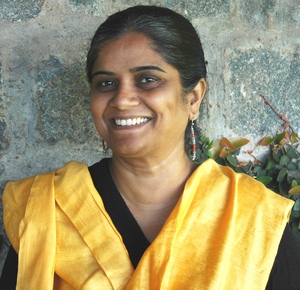The world holds very polarized opinions about the former Cuban dictator, and Mari Marcel Thekaekara tries to put some order.
So Fidel Castro has gone too.
‘Presume you’ll be writing your blog about him,’ my husband Stan remarked. ‘I’m not sure’, I replied. ‘Although I always believe Marxism was written for the poor, but like Christianity, few people, especially those who pontificate prolifically, seriously ever practise it.’
I grew up in Calcutta, where an elected Marxist government ruled. We had the world’s longest elected leader, a veteran Marxist Chief Minister, venerated by voters filled with hope, and eager to see change. Yet forty years down the line Calcutta, now Kolkata, remains one of India’s most impoverished cities.
I cannot ignore the fact that journalists can’t ask probing questions about human rights abuses in most Marxist havens. And so I said ‘What’s to write about?’ He replied, ‘Who are the Cubans celebrating his death and who are the Cubans weeping profusely for him? That’s the question the mainstream media never asks.’

A man stands next to a mural depicting the late former Cuban leader Fidel Castro (L) at the 23 Enero neighbourhood in Caracas, Venezuela. REUTERS/Marco Bello
‘Hmmm, if you put it that way…’
I am further encouraged by a Guardian article about Fidelistas, pro-Castro Cubans, lifelong supporters of the socialist dictator. How Cubans react to Castro’s death depends hugely on the social strata from which they emerged when the revolution happened. The rage and resentment came from the elites and middle classes. An 86-year-old grandmother who celebrated Castro’s triumph recalls the brutality of the Batista regime. After Castro, there was relief. Hard times undoubtedly, but for the first time she and her family enjoyed free education and decent healthcare, only after Castro. Her children and grandchildren are educated. They still live a really frugal existence. But she recalls that black people were treated like dirt before Castro’s regime came to power. Under the Batista regime they could never have escaped doing the lowest paid jobs, condemned to drudgery all their lives. She is happy with her decent brick house which has running water and electricity. It has brought dignity to her existence. Her granddaughter is a paediatrician, although earning a pittance. Another grandchild is a lawyer. For her, and three generations of her family, life changed radically for the better because of Castro. Cuba is one of those rare, underdeveloped countries which offer world class healthcare and education for even the poorest citizen.
Che Guevara’s daughter confesses she abhors violence, but the nature of a revolution means you have to defeat the enemy by force.
Mao’s murderous, mindless annihilation of the middle classes, the Chinese famine under his regime which killed millions leave us horrified. So did Stalin’s purges. Personally, I feel revulsion when I read the accounts of brutality committed in the name of the revolutions. I’m always curious about the fact, that the only revolution that was romanticised and feted was the French Revolution. The removal of the nobility was dismissed with its ‘excesses’. Liberté, égalité, fraternité won the day.
Or perhaps, in those days before television, the propaganda machines were not so efficient.
The excesses of the Castro regime are systematically, regularly, denounced by many politicians and propaganda spinners. Billions of dollars have been spent on this campaign since the Bay of Pigs catastrophe. We buy the message that Iraq can be pulverized by Shock and Awe. That’s just Collateral Damage. Millions of Iraqis have lost their lives though their country had nothing whatsoever to do with 9/11. Afghanistan has been punished too. Yet Pakistan has been rewarded by a string of US administrations, both Democratic and Republican, despite Pakistan sheltered Osama Bin Laden.
RELATED: The new Cuba, New Internationalist magazine, October 2014, Issue 476
In the end, the injustice and unfairness of it all is just overwhelming. I have no idea what the history books will tell us a hundred years from now. Will we be judged as decent civilised people? Or will we pat ourselves on our backs and continue to proclaim that we are the good guys. With God on our side. It’s a question beyond you and I. Presumably, history will have to decide.
![06-12-590-fidel3.JPG [Related Image]](/web/20170706000004im_/https://newint.org/blog/2016/12/06/06-12-590-fidel3.jpg)


Comments on Goodbye Castro: who are the good guys?
Leave your comment
Registration is quick and easy. Plus you won’t have to re-type the blurry words to comment!
Register | Login
#1 Maggie 06 Dec 16
#2 Josette 07 Dec 16
#3 ST 07 Dec 16
#4 Stan 07 Dec 16
#5 ludwig pesch 09 Dec 16
#6 Rob Currie Nicaragua 15 Dec 16
#7 Rishi 15 Jan 17
Subscribe to Comments for this article
Guidelines: Please be respectful of others when posting your reply.